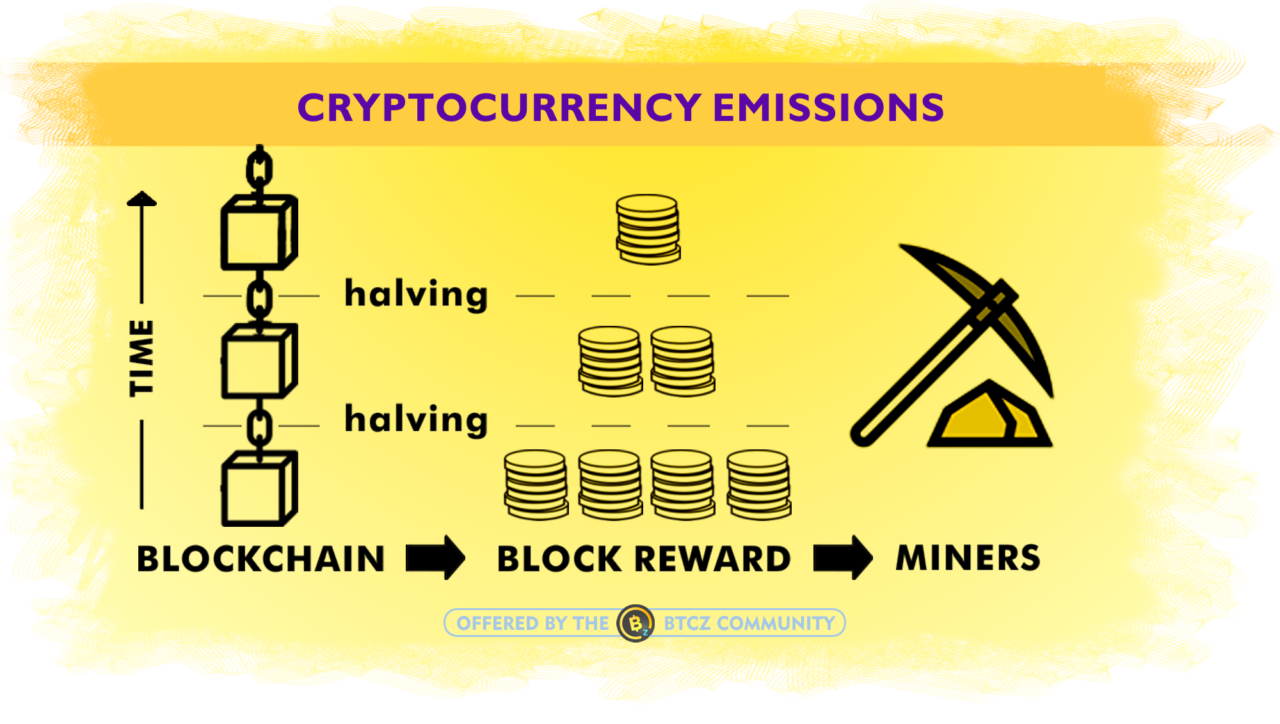What is a Block Reward:
A block reward is a type of reward given to miners or validators who successfully add a new block to a blockchain network. In a blockchain network, each block contains a set of transactions and a unique code called a "hash" that connects it to the previous block in the chain. This hash code also serves as a proof-of-work that validates the transactions in the block.
When a miner or validator successfully creates a new block and adds it to the blockchain, they are rewarded with a certain amount of cryptocurrency or tokens as a block reward. The block reward incentivizes miners or validators to continue to validate transactions and create new blocks, thus securing the network and maintaining its integrity. In many cases, the block reward decreases over time as a means of controlling the supply of the cryptocurrency or token and preventing inflation.
The block reward in a blockchain network typically consists of two parts:
Newly created cryptocurrency:
When a miner successfully solves the cryptographic hashing problem for a block, they are rewarded with newly created cryptocurrency as per the rules of the network. In the case of Bitcoin, this reward started as 50 BTC per block, but it is now 6.25 BTC after multiple havlings.
Transaction fees:
Each transaction included in a block has a fee attached to it, which is paid by the sender to incentivize miners to include their transaction in the next block. The total transaction fees collected for all transactions included in a block also form a part of the block reward and are paid to the miner who solves the associated hashing problem.
Together, these two components make up the block reward that is paid out to miners for adding new blocks to the blockchain.
While Bitcoin was originally mined using CPUs, it has since become more efficient to use GPUs and specialized ASICs. The reward for solving a hashing problem on the Bitcoin blockchain was initially 50 BTC, but it is halved every 210,000 blocks, occurring about every four years. Block rewards are awarded to miners as the first transaction recorded in the block. Bitcoin mining is now profitable only for large-scale operations with expensive hardware, tightly controlled conditions, and low energy costs.
Block Reward is used for:
Block rewards are used as an incentive for miners to add new blocks to the blockchain. In the case of Bitcoin and other proof-of-work blockchains, miners compete to solve complex cryptographic puzzles to validate transactions and add new blocks to the blockchain. The first miner to solve the puzzle is rewarded with a block reward in the form of newly created cryptocurrency, along with any transaction fees associated with the transactions included in the block. This system helps to ensure the security and stability of the blockchain by incentivizing miners to expend computational resources to validate transactions and maintain the integrity of the network.

